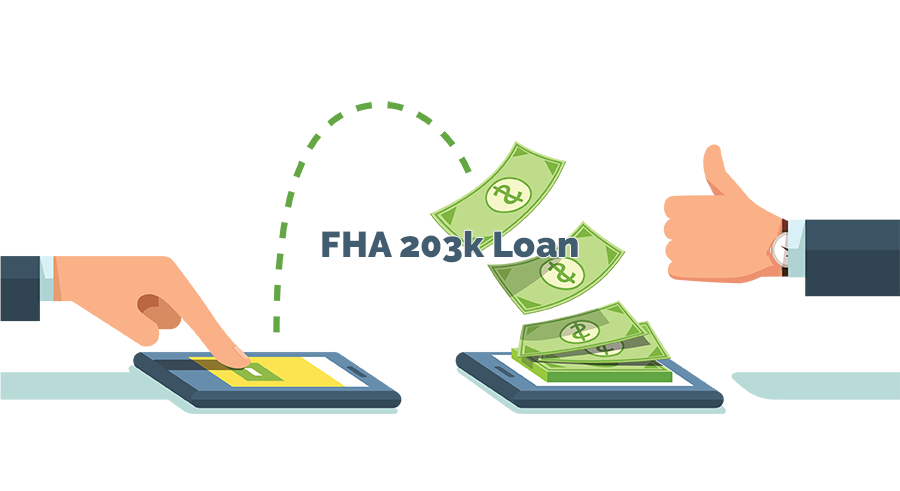Finding the perfect foreclosure to invest in is exciting, but paying for it is the opposite. Many would-be investors shy away from purchasing bank-owned properties because they don’t have the available capital to make an all-cash purchase, which is the preferred payment option (or sometimes only option as in a foreclosure auction). However, there are a few loan options available to buyers that can allow them to make their purchase.
The FHA 203k Loan
The FHA 203k loan is a popular option for foreclosure purchases because borrowers must pay a mortgage insurance premium that allows the FHA to guarantee loans made by private lenders who take part in this program—this helps to ease the lenders’ concerns over the risk of financing these purchases. This is also an attractive option for borrowers because not only can they finance the purchase of the home, but they can also include any necessary repair costs into the mortgage.

This program offers two different loan options. The Limited 203k Mortgage which allows up to $35,000 to be added to the loan to cover repairs and upgrades such as remodelling the kitchen or any other repairs. For projects over $35,000, there is the option of a 203k Rehab Mortgage. This is typically used for larger undertakings like roofing, plumbing, or even rebuilding a demolished house (as long as the foundation is intact). To qualify for this loan, borrowers must use an FHA consultant, the property must be older than one year, and the construction budget must be over $5,000. The biggest disadvantage to these loans, however, is that borrowers usually pay higher interest rates than those on conventional loans.
The Fannie Mae HomeStyle Renovation Loan
If you buy a property that needs a lot of renovations, you may want to choose a Fannie Mae HomeStyle renovation mortgage, which like the 203k loan, rolls the purchase price and the rehab costs into a single loan with the option of a down payment as low as 5%. The main difference between qualifying for this loan and the FHA 203k loan is that borrowers need a credit score of at least 620. Additionally, they must hire a licensed contractor to prepare a budget to present to the lenders to justify the loan amount. Then, the funds go into an escrow account and may be disbursed as needed throughout the construction. Additionally, when the work is complete (all work must be completed within a 12-month time frame), an appraiser must inspect it.
Home Equity Line of Credit
Homeowners who have equity in their property may opt to open a home equity line of credit to help finance a foreclosure investment. With this type of loan, lenders may extend a credit line of up to 85% of the equity. Even though this option has few hurdles, it comes at a cost: interest rates are typically higher than conventional mortgages and could cost thousands more in payments over a longer period of time. However, if an investor needs money quickly for a short period, this may be a good option for them.